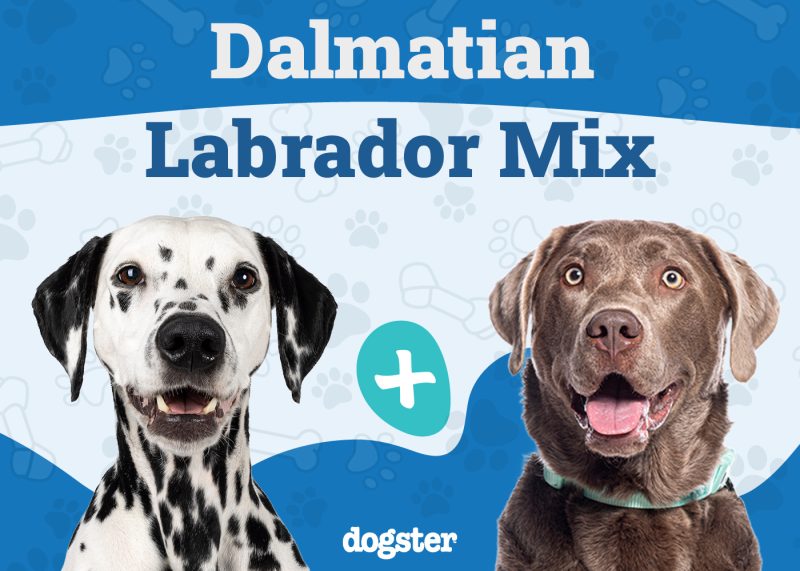Welcome to our “Ask Dr. Paola” series, where every Monday we bring expert advice straight from Dr. Paola Cuevas (MVZ) to help our readers better understand their dog’s health and well-being.
Whether you’re a new pet parent or a seasoned dog lover, Dr. Paola is here to provide answers to your most pressing questions. From nutrition tips and preventive care to troubleshooting common behavioral issues, Dr. Paola is ready to offer insights that will keep your furry friend happy and healthy. Stay tuned for expert guidance on a range of topics that matter most to you and your dog, so you can make informed decisions and provide the best possible care for your canine companion. Have a question? Send it in here!

Help! My Dog Still Has Her Nipples!
“Hi Dr. Paola,
When will our Miniature Schnauzer Tarot lose her nipples? ” – Norman
Thank you for your question, Norman. Your Miniature Schnauzer, Tarot, will not lose her nipples. Nipples are a normal part of a dog’s anatomy and remain throughout life in both males and females, regardless of whether they have been spayed or have had puppies. They only change significantly if there is an underlying medical condition affecting the skin or mammary tissue.
If you’ve noticed any changes in Tarot’s nipples, such as swelling, crusting, discharge, or ulceration, these could be signs of a dermatologic issue, hormonal fluctuation, or mammary gland disorder. Conditions like mastitis, mammary hyperplasia, or neoplasia can cause visible changes and should be evaluated early. If you are unsure whether what you’re seeing is normal, a video consultation with one of the veterinarians at PangoVet can be a helpful first step in determining whether she needs to be examined in person.
Regards,
Dr. Paola

If you want real time answers to your questions, you can talk to one of our veterinarians online. Click on the image or button below:


Help! My Dog Had an Adverse Reaction to Librela!
“Dear Dr. Paola,
Librela injections have basically destroyed my 5-year-old Sheltie’s back legs. After much, much testing to rule out everything else, my surgical vet (who suspected Librela) told me that new information in the past few months has come out on Librela and that the FDA has an investigation ongoing. We are in the process of getting a wheelchair.
He had surgery months ago because of bilateral torn ACLs in his back knees. After continuous PT, he continued to get worse. He cannot walk on his paws because of severe ligament damage, etc. His legs are just floppy. Please advise in your column about Librela’s dangers so others can be made aware. He was on Librela due to arthritis in his front legs. “ – Donna
Hi Dona,
I’m so sorry you’re going through such a painful and overwhelming experience with your Sheltie. When a beloved dog begins to lose function despite surgery, rehabilitation, and ongoing care, it’s not only physically demanding but emotionally exhausting. Your dedication to seeking answers while supporting your dog through this is deeply commendable.
Librela (bedinvetmab) is a monoclonal antibody approved to manage osteoarthritis pain by targeting nerve growth factor (NGF). While it was generally well tolerated in clinical trials, the FDA has received over 3,600 adverse event reports since its U.S. approval in 2023. These include neurologic signs such as ataxia, paresis, paralysis, recumbency, and in some cases, death or euthanasia. In many reports, these signs occurred within days of administration, often after the first dose, and without other medications involved. A review published in 2024 further highlighted that musculoskeletal adverse events, including ligament damage and rapid joint deterioration, were reported significantly more often in dogs treated with Librela than in those receiving NSAIDs. As a result, the FDA has required Zoetis to update Librela’s label to include post-approval reports of serious neurologic, urinary, gastrointestinal, and musculoskeletal events. A more recent 2025 global pharmacovigilance review of more than 18 million administered doses found that while adverse events are still considered rare, some serious effects, such as neurologic and musculoskeletal signs, have been reported, highlighting the importance of ongoing monitoring and open communication among veterinarians and pet parents worldwide.
Although causation is not confirmed by these reports alone, they are being taken seriously by both regulatory agencies and the veterinary community. In complex cases like your dog’s, with prior orthopedic challenges, it can be difficult to isolate a single contributing factor, but sharing this information helps protect other pets and raises awareness of the need for further research. Your voice plays an important role in that effort, and I admire your courage in speaking up.
Sincerely,
– Dr. Paola

Help! I Need a More Affordable Option!
“Dear Dr. Paola,
Hunter gets a Librela shot every month. The cost is $80. Is there any over-the-counter pill I can use? ” – Lynne
Hi Lynne,
Thank you for your question. I completely understand how the ongoing cost of managing chronic arthritis in dogs can become burdensome, especially with monthly treatments. Librela is a veterinary-prescribed monoclonal antibody designed to target nerve growth factor (NGF), which plays a central role in pain transmission. This is a unique mechanism that is not replicated by any over-the-counter medication, and currently, there is no FDA-approved alternative available without a prescription that offers the same targeted effect.
Additionally, it’s worth noting that the FDA is reviewing a growing number of post-marketing reports of adverse effects associated with Librela. While no causal link has been confirmed, this investigation has led to increased awareness and label updates. For more details, please refer to the question above.
Over-the-counter support for arthritis typically includes joint supplements like glucosamine, chondroitin, omega-3 fatty acids from fish oil, or green-lipped mussel extract. These may help support cartilage health and reduce inflammation, but they do not directly control pain, and their benefits tend to develop gradually and vary between individuals. Human over-the-counter pain medications such as ibuprofen or acetaminophen should never be used in dogs, as they can lead to serious toxicity. If cost is a concern, I would suggest speaking with your veterinarian about other prescription options, such as generic NSAIDs, or potentially combining a nutraceutical plan with lifestyle strategies like weight management or therapeutic exercise. I hope this helps!
Good luck!
Dr.Paola
- View past week’s questions here: August 4, 2025
- See our full list of past articles here
- Click here to submit a question






















